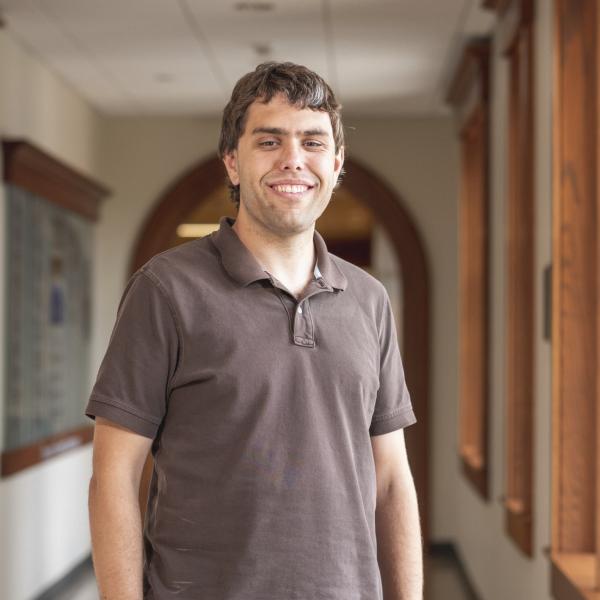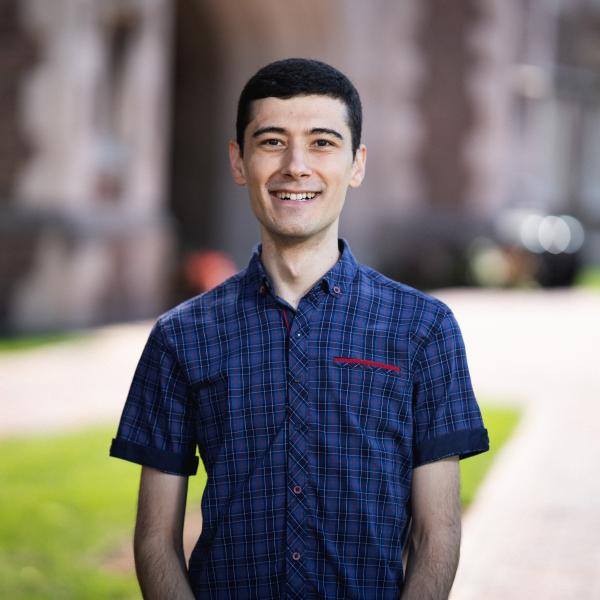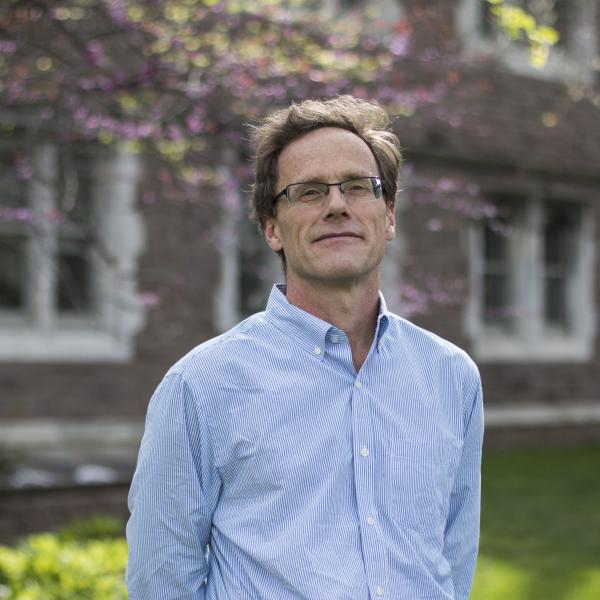Two alumni from the Department of Mathematics and Statistics explain why they opted to leave academia and apply their mathematics training to challenges in government and industry.
Have you ever searched for a 9-inch non-stick frying pan, and a few hours later – voila! – an ad for frying pans shows up in the margin of your favorite website? Or perhaps, like me, you’ve had an encounter that's somewhat less helpful: Over a year ago, I Googled “bounded mean oscillation functions” (abbreviated as BMO in the math world), and to this day I am targeted with ads suggesting I open a checking account at BMO Harris Bank. Such is the power of targeted advertising, an industry very much rooted in mathematics and statistics.
For many of us, it’s no surprise that mathematicians apply their skills to real-world problems outside of academia. Data from WashU’s Department of Mathematics and Statistics show that, since the early nineties, roughly a quarter of PhD recipients have taken their first post-graduation job outside of academia.

One such graduate is Alexandru Papiu, PhD ‘17. Papiu is a senior data scientist for the New York advertising technology company Simulmedia, Inc. He develops mathematical algorithms for television ads, which are targeted using a process similar to that of their online counterparts. Papiu studied under John Shareshian, professor of mathematics and statistics, and his doctoral research dealt with the fields of combinatorics and topology (those translate, roughly, to the study of counting things and the study of how spaces can be deformed, respectively).
“In my job I’m tasked with building algorithms that optimize return on investments in television advertisements,” said Papiu. “I’m given an advertising budget, audience, and demographic data on viewership, then asked to maximize the total audience size that can be reached – which is a non-trivial combinatorics problem.”
Papiu’s mathematics background has direct applications to this task. The strategy behind choosing a particular commercial slot, he explained, is roughly equivalent to a classical maximal coverage problem. For example, suppose you are given ten buckets, each containing various numbers of different colored balls. You are asked to pick no more than five of these buckets, but you must choose so that your buckets contain both the largest variety of colors and the fewest balls in total. How do you do it? In general, finding a solution is not trivial and requires sophisticated mathematical algorithms.
Several aspects drew him to this work. Papiu says that the competitiveness and demand of an academic career were discouraging, and he wasn’t sure that he wanted to do pure mathematics research for the entirety of his working life. But, more important, he was excited to work on real-world problems where he could earn a higher wage and immediately apply his mathematical knowledge. “Research in pure math is beautiful and alluring, but higher salaries with a larger choice of location and a readily tangible impact led me to my current position.”
Moving into industry was an easy jump, Papiu said, coming from a robust and socially well-knit department. “Some of the soft skills I sharpened in graduate school – things like effective communication, intellectual appreciation, and humility – are definitely attributes of successful people in industry.”
Mathematicians not only play in the shadows of television and online advertising, but also at the forefront of cybersecurity and national defense. One such mathematician is Lynn Apfel, PhD ’03.
“My friends and I like to joke that it has never been better to be a nerd. There are so many opportunities for careers in math outside of academia.” – Lynn Apfel, PhD ’03.
Apfel completed her doctoral degree in complex analysis (think calculus and the study of functions, but where variables can be imaginary, like the square root of -1) under Steven G. Krantz, professor of mathematics and statistics. Apfel is a data scientist with the U.S. government and currently works in a technical leadership role, expediting the application of data science to production. “There are challenges that data science practitioners face in applying their craft, and my job is to develop solutions to those problems,” said Apfel. “Some of my previous work has involved applying data science techniques to mission problems to answer questions for our customers and leading a team of analysts and developers to create analytics that make sense of large volumes of data to solve mission problems.”
When asked what led her to government work over academia, Apfel said that getting to work on a seemingly endless supply of interesting problems with smart and collaborative people was very appealing. “I also appreciate the work-life balance that working for the government brings,” Apfel noted. She feels her career allows for that “more so than an academic career, which requires a balancing act of research and teaching.”
There are tangible incentives for mathematicians working outside of academia, Apfel notes. “My friends and I like to joke that it has never been better to be a nerd. There are so many opportunities for careers in math outside of academia,” she said. “Each area offers pros and cons, and it really depends on what you are looking for.”
In her daily work, Apfel, like Papiu, draws on the broad communications and problem-solving skills she developed as a graduate student at WashU. “My teaching experience empowered me to be comfortable leading presentations, giving talks, and speaking at meetings, which can be challenging communication skills for a lot of folks,” she explained. “We are hired because we know how to solve hard problems, work with abstract ideas and non-well-defined problems, how to handle ambiguity, how to translate English to mathematics, how to think through problems, and how to apply math to solve real-world problems.”




